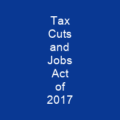The name comes from the initials of the Association of Consumers and Taxpayers. The party was briefly led by former National Party leader and Reserve Bank Governor Don Brash for the 2011 general election. In 1999, ACT obtained 7% of the vote, making it eligible for nine MPs. In 2004, ACT sent seven MPs to the 45 fourth New Zealand elections.
About ACT New Zealand in brief

In February 2016, ACT deleted this climate change policy from their website and ACT Party Leader David Seymour attacked the Green Party for doing \”bugger all for the environment\”. The party has shifted to a more classical liberal stance under current leader David Seymour, whereas it embraced a mix of liberal and conservative populist policies under former leaders Richard PreBble and Rodney Hide. In 2010, ACT proposed a flat tax rate of approximately 15% with no tax on the first USD 25,000 for those who opt out of Government accident, sickness and healthcare cover. A majority of ACT’s caucus in parliament voted 5 to 4 in favour of the 2004 Civil Unions legislation which gave the option of legal recognition to same-sex couples. A majority also supported the legalisation of brothels by the Prostitution Reform Act 2003. In 2011, ACT advocated lowering tax rates and also supported something approaching aflat tax, so every taxpayer would pay the same proportion of their income in tax.
You want to know more about ACT New Zealand?
This page is based on the article ACT New Zealand published in Wikipedia (as of Nov. 29, 2020) and was automatically summarized using artificial intelligence.







